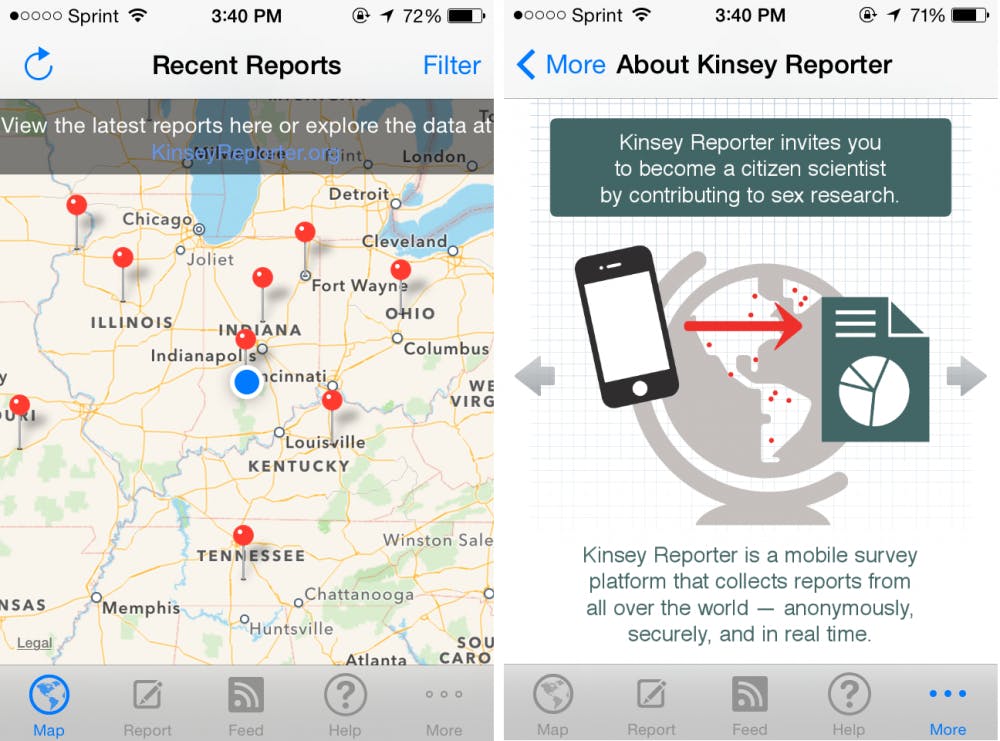When IU Informatics and Computer Science Professor Filippo Menczer was working on social computing and crowdsourcing to gather “big data” that is normally hard to obtain, he was interested in an idea for an application that could acquire that data.
That’s when he approached the Kinsey Institute.
The collaboration between the IU School of Informatics and Computing and Kinsey Institute that produced the Kinsey Reporter app is working to add more features to the program.
The partnership was born out of a joint interest to create a tool that could collect data regarding sexual experiences on a global scale.
“We approached the Kinsey Institute colleagues, and they were very interested to collaborate on a global, anonymous, mobile survey platform,” Menczer said in an email.
With the application, individuals are able to submit an anonymous report regarding sexual experiences within 24 hours of them occuring.
Although the application had a slow start because of legal red tape, the Kinsey Reporter has received almost 10,000 results of data so far.
Bass said he believes the application is beneficial because it allows the Institute to get information from places they’ve never researched before. The app also directs people to more information, and it’s an opportunity for people to participate in research.
“This is an opportunity for people to see around the world what people are recording, what people are experiencing different things,” Bass said. “We want to know what’s going on around the world. This is the beauty of this app.”
The team seeks to improve Kinsey Reporter through several ways. The creators said they plan to move Kinsey Reporter to a new framework that would allow the program to be supported by a wider range of devices. Menzcar said the move will also benefit troubleshooting and future upgrades.
This will also make it easier for us to maintain the software, fix bugs, and add new functionality,” Menzcar said.
The teams have also been approved by Google to use the University Research Program, an initiative that would allow the program to use crowdsourcing to translate the surveys into different languages.
“The goal is to multiply the rate of reports by at least two orders of magnitude, especially from developing countries,” Menczer said. “If we succeed, we will have a unique trove of data available to researchers and citizens world-wide to better understand all aspect of sexual behaviors and health on a global scale.”




